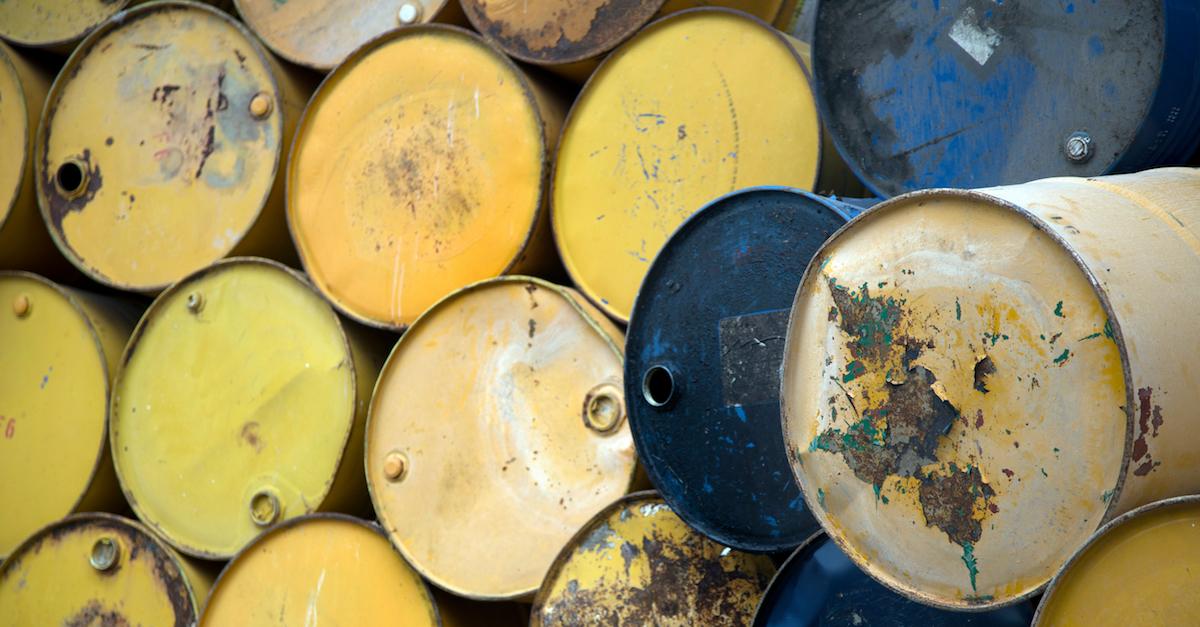How to Recycle Used Motor Oil Instead of Trashing It
Updated Jan. 25 2023, 5:03 p.m. ET

The automobile, a now necessary element of everyday life for billions of people across the globe, is one of the greatest technological advancements of all time. Unfortunately, the cost of its convenience is an unparalleled negative environmental impact. Cars guzzle resources, belch out pollutants, and create a staggering amount of non-biodegradable waste like tires, plastic chassis, transmission fluids, and motor oil.
Of all these, motor oil is one of the most difficult to get rid of on your own — but did you know that you can actually recycle motor oil rather than throwing it away?

Where do I take my used motor oil for recycling?
There are many recycling programs out there, many of which can be found through a basic Google search. Many states and municipalities have programs for getting rid of used oil as well. However, retailers that sell motor oil, including Advance Auto, AutoZone, and Walmart, all accept motor oil for recycling. Many service stations will also accept used motor oil, so check in with your local Jiffy Lube or independent service station.
That said, many places prefer you pass your used motor oil through a filter before handing it over, so make sure to check with the retailer or service station before bringing in your motor oil for recycling.
What is motor oil?
Motor oil’s purpose in an engine is to reduce friction, clean, cool, and essentially protect the engine from the normal wear and tear created by fast-moving, high-temperature parts. According to Pennzoil, old motor oil used to be a mixture of some type of base oil and additives that accomplished the aforementioned functions. The synthetic motor oils available today are far more complex and designed to do more than just lubricate and cool.
Modern synthetic oils not only reduce friction, but they also enhance engine performance and protect the car in a way that ensures a longer life of the engine and the car. In some ways, synthetic motor oil is actually better for the environment than its predecessors. Unfortunately, the many unnamed “additives” can still cause a lot of trouble for the environment.

What additives can be found in motor oil?
As mentioned earlier, motor oil consists of base oil and some mixture of additives. The base oil, which is usually created from crude oil or natural gas, is itself a pollutant and nonrenewable resource. This oil base makes up 70 to 90 percent of the mixture.
What remains, according to Elf.com, can be a variety of dispersants, detergents, corrosion inhibitors, viscosity index improvers, and friction modifiers — basically, a load of chemical enhancements that we can guarantee are not eco-friendly.

What happens to used motor oil?
Aside from its obvious uses, motor oil actually has a number of other practical uses. Despite its many additives, used motor oil can be recycled and re-refined into a base stock for creating new batches of motor oil. It’s a process similar to the way crude oil is refined, and while it isn’t the best thing for the environment, it’s better than dumping it down a storm drain. According to the EPA, the used oil from one oil change can contaminate 1 million gallons of water if it finds its way into the water table.
The other use for recycled motor oil is to burn it for energy or to fuel power plants or cement kilns. The large industrial boilers capable of burning the oil can allegedly do so while producing minimum pollution. That is according to the American Petroleum Institute, which we agree does sound a bit like an organization with an agenda, so take it with a grain of salt. But, if you look on the bright side, it’s still recycling.

Why should you recycle motor oil?
The recycling of petroleum products is not as widely recognized as it ought to be. This is due to misinformation and a lack of agencies reaching out to communicate with businesses that might not know that they can recycle their customers’ used motor oil. Individuals don’t really know that it’s possible either — though most at least know that they shouldn’t dump their old engine oil down the drain.
Recycling anything, be it plastic, glass, paper, or motor oil, is a way of creating something renewable out of something that, for a long time, was not. Even 1 gallon of used oil can contaminate huge amounts of water, so spreading knowledge about the existence of these recycling programs is paramount to keeping this gunk out of our rivers, lakes, and streams. Clean water and clean air are essential to our continued existence, so we need to be mindful.'
This article, originally published on Dec. 2, 2020, has been updated.